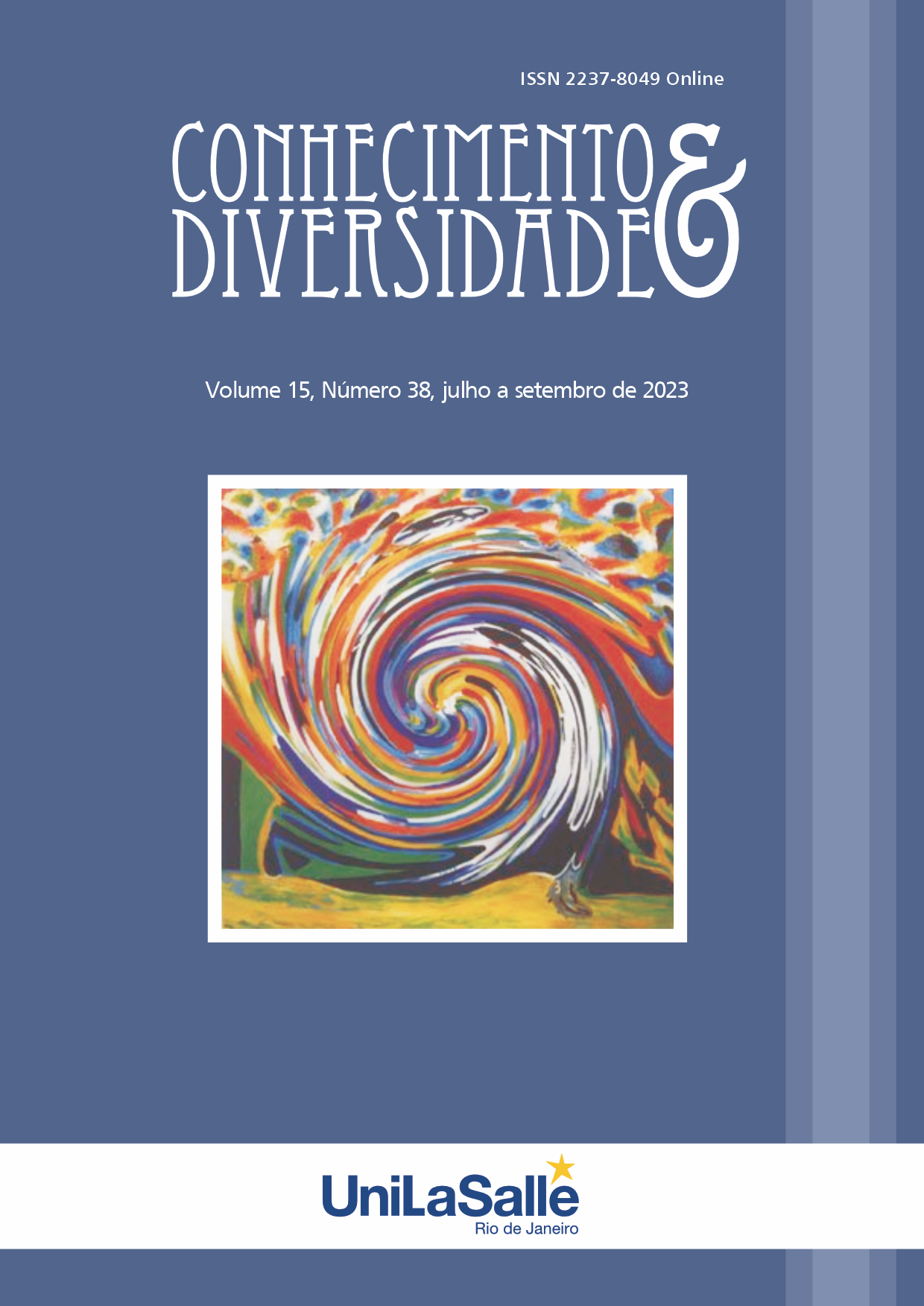TECHNOLOGICAL FEATURES OF IMPLEMENTING INNOVATIONS IN INSTITUTIONS OF HIGHER EDUCATION
DOI:
https://doi.org/10.18316/rcd.v15i38.11053Palabras clave:
Innovative activity, Education, Educational process, Professional trainingResumen
The article, based on the international experience and the experience of innovative activity of Ukrainian universities, analyzes not only the conceptual foundations and general innovative trends of domestic higher education, but also the peculiarities and problems of development and implementation of innovations in educational activities technologies in the process of professionalization. This approach largely determined the structure of the book, in which the chapters devoted to educational innovation strategies are correlated with the practice of implementing educational innovations in the system of professional training of future specialists.
Citas
BOGOMOLOV, V.A. Review of free learning management systems. Educational Technology & Society, 2007, p.188. No available online.
DERKACH A. M. Case-method in teaching. Specialist. 2010, p. 22-23.Available at: http://www.kapr.ru/annotations/2006/12. Access: March 11, 2021.
HARRIS, S., SUTTON, R. Functions of parting ceremonies in dying organizations. Academy of Management Journal, 19, 1986, p. 5-30. Available at: http://www.gslis.utexas.edu/~ssoy/usesusers/l391d1b.htm. Access: March 11, 2021.
IASECHKO, M., SHELUKHIN, O., MARANOV, A. Evaluation of The Use of Inertial Navigation Systems to Improve The Accuracy of Object Navigation. International Journal Of Computer Science And Network Security, 21:3, 2021, pp. 71-75. Available at: http://paper.ijcsns.org/07_book/202103/20210310.pdf. Access: March 30 2021.
IASECHKO, M., IASECHKO, S., SMYRNOVA, I. Aspectos pedagógicos do autodesenvolvimento de alunos de educação a distância na Ucrânia. Laplage Em Revista, 7(Extra-B), 2021, p.316-323. Available at: https://doi.org/10.24115/S2446-622020217Extra-B929p.316-323. Access: June 11, 2021.
IMPROVEMENTS IN VERSION MOODLE 1.9 [Electronic resource]. Available at: http://docs.moodle.org/en/Release_Notes#Moodle_1.9.1. Access: March 11, 2021.
INDEX OF CODES. Available at: http://www.ecgi.org/codes/all_codes.php. Access: March 11, 2021.
METHODOLOGY FOR USING AN ELECTRONIC TEXTBOOK IN PHYSICS LESSONS Available at: http://works.tarefer.ru/64/100534/index.html. Access: March 11, 2021.
OECD. Education at a Glance 2016: OECD Indicators, OECD Publishing, 2016, Paris. Available at: https://doi.org/10.1787/eag-2016-en. Access: March 11, 2021.
Organization of distance learning using modern ICT. Available at: http://uotashtagol.3dn.ru/doc/PDF/Dist_Obuch/metodicheskie_rekomendacii_dlja_pedagogov_obrazova.pdf. Access: March 11, 2021.
POLAT, E.S. Distance learning models, 2008. Available at: http://hr-portal.ru/article/modeli-distancionnogo-obucheniya-polat-es. Access: March 11, 2021.
TECHNOLOGY OF CREATION OF ELECTRONIC TEACHING AIDS [Electronic resource]. - Available at: www.ido.rudn.ru/nfpk/tech/t1.html. Access: March 11, 2021.
DOBBINS, M., KNILL, C. Higher education governance in France, Germany, and Italy: Change and variation in the impact of transnational soft governance. Policy and Society. Vol. 36. № 1: 67-88, 2017.
BORDAS-BELTRÁN, J. L. , ARRAS-VOTA A. M. Mexican students' perspectives on ICT competencies. A gender-based analysis. Revista Latina de Comunicación Social. Vol. 73: 462- 477, 2018.
BROLPITO, A. Digital skills and competence, and digital and online learning. European Training Foundation, 2018: 84, 2018.
KHUANWANGA, W., LAWTHONGA N., SUWANMONKHA S. Development of evaluation standards for professional experiential training of student teachers. Procedia - Social and Behavioral Sciences. № 217: 878-886, 2016.
KOLODZIEJCZAK, B., ROSZAK M. ICT competencies for academic E-learning. Preparing students for distance education - authors' proposal. ICTE Journal, 6 (3): 14-25, 2017.
LIMBERG, L., OLOF S., SANNA T. Three Theoretical Perspectives on Information Literacy. Human IT: Journal for Information Technology Studies as a Human Science. № 11: 93-130, 2012.
Descargas
Publicado
Número
Sección
Licencia
Derechos de autor 2023 Nataliia Levchenko, Veronika Odarchenko, Iryna Diatlova, Petro Kvitkin, Nataliia Mykhalchenko

Esta obra está bajo una licencia internacional Creative Commons Atribución 4.0.
Tal como recomienda el Public Knowledge Project, RCD adopta para sus artículos una licencia CREATIVE COMMONS: Attribution CC BY 4.0
Esta licencia permite que otros distribuyan, remezclen, adapten y desarrollen su obra, incluso con fines comerciales, siempre que le atribuyan a usted el mérito de la creación original.
Esta es la licencia más adecuada que se ofrece.
Recomendado para la máxima difusión y utilización de los materiales bajo licencia.



